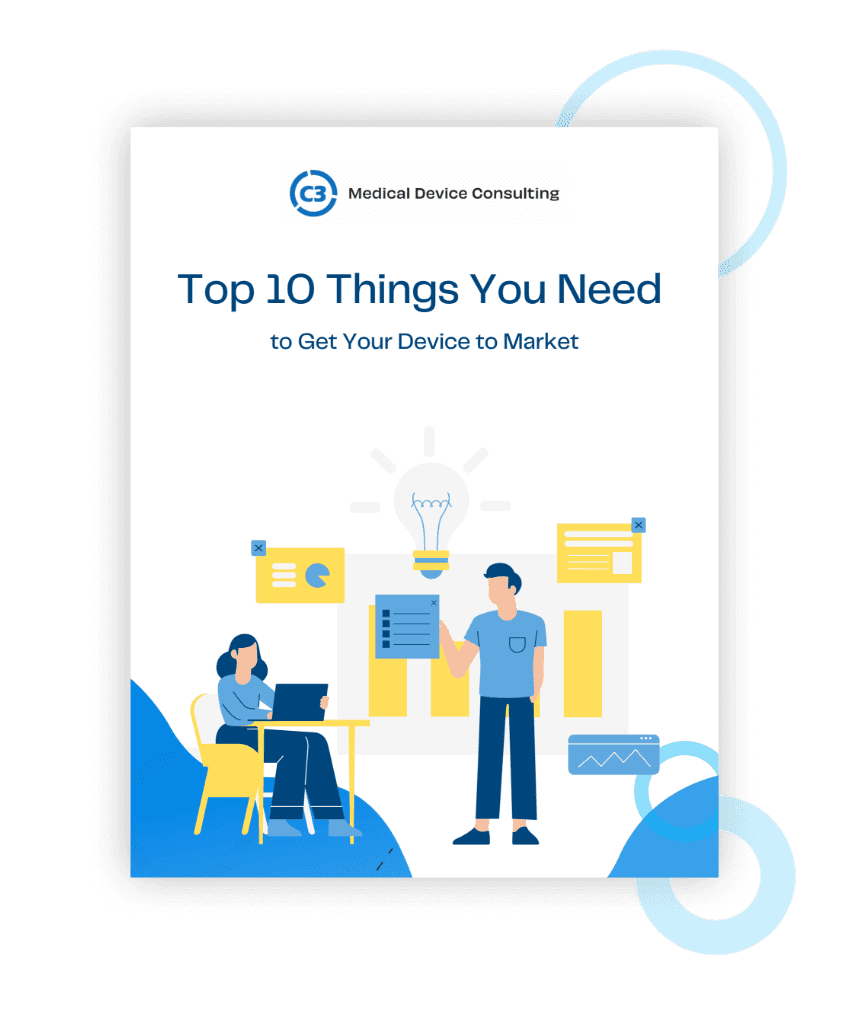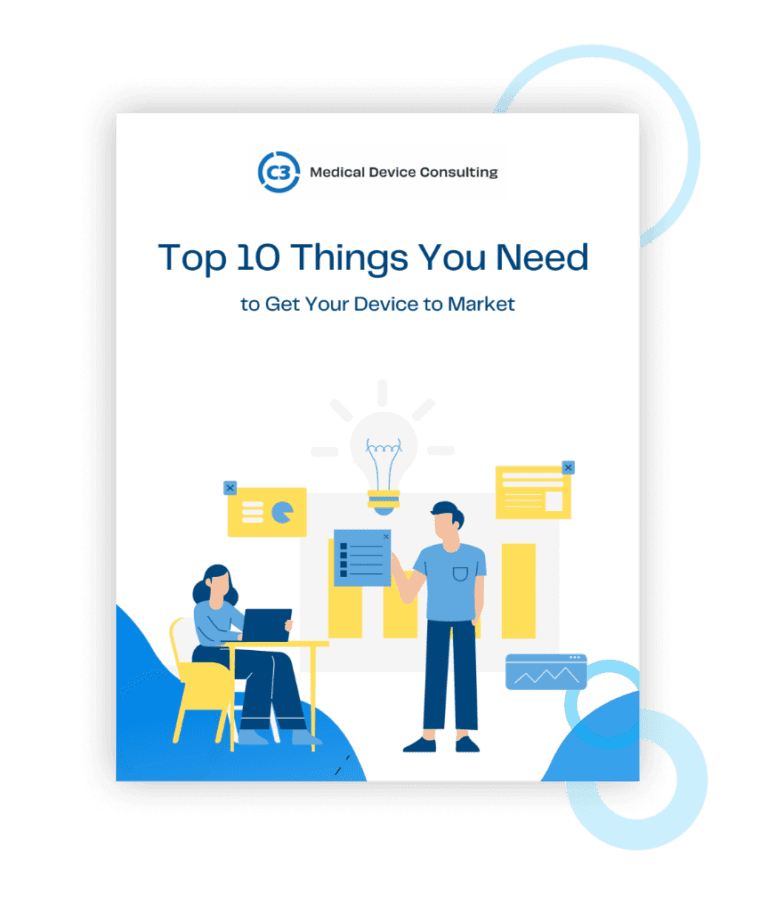As the prevalence of chronic conditions and the geriatric population increases, the medical device sector’s role in healthcare becomes more crucial. That’s because medical devices make diagnosing, treating, and monitoring conditions easier. For patients who need them, such devices can significantly improve their quality of life. The rising demand for medical devices increases the need to develop new and better products and solutions.
This is why investments in research and development in the sector are on the rise. And, despite the challenges of 2020, the sector is projected to bounce back in 2021 and grow at a compound annual growth rate of 6.1% to reach $603 billion in 2023.
Undoubtedly, the medical device industry is highly lucrative, and developing new devices can translate to substantial profits for those involved in a device’s success. This is why you need to give your company the best possible chance of becoming an industry trailblazer. In this regard, hiring a medical device partner is arguably the best step you can take. Despite having a qualified person leading your company, a third-party consultant who’s an expert in the field will be an invaluable addition to your project.
Some of the benefits of working with a medical device partner include:
- No wasted time or money
- Help every step of the way
- Up-to-date industry knowledge
- Overlapping expertise
- Faster FDA approval
- No getting stuck or stalling out
However, it’s not just about hiring a medical device partner. You need to select one that has relevant experience, a proven track record, and is easy to work with.
Here are some of the most important things to consider when hiring a medical device partner.
1. Define the Scope of the Project
A medical device partner will only be beneficial to your organization if you know why you need them and what for, so you must first assess the entire project and determine its needs. The roles for the consultant/internal company, timelines, and scope must be clearly defined from the beginning. All of these, including the deliverables, should be communicated during consultant interviews and incorporated into the contract.
One area you really have to be clear about is the level of involvement you want from the medical device partner. Once they give advice, will it be them or your team that implements the suggestions? Even if you want a hands-on approach from your medical device partner, it’s important to define hands-on as you see it since they could have a different interpretation. This will prevent a scenario where your internal team has to perform tasks that were originally reserved for the consultant, and will avoid unnecessary stress and wasted time.
During the consultant interviews, you should communicate all of your expectations and ask your potential medical device designer to provide a brief document outlining how they’ll approach the project. Such information will make it easier to draft a mutually acceptable contract. Be sure to also inquire about the project management tools they’ll use to track the project. The more you know upfront, the smoother the process will be.
2. Interviewing
There are many medical device consultants available, with varying skill levels and costs. Some may be exceptional, but not suitable for your particular project. So it’s really important not to hire based solely on word of mouth or a random online search. You should determine your needs and structure your interview toward finding the ideal candidate.
Other than the usual credentials, you should also pay attention to:
- Their interest and focus on the project. This will be indicated by the number of questions they ask. It’s always best to work with someone who’s as passionate about helping you get it right as you are.
- Listening skills. This will affect your entire project, so you want to work with someone that not only hears you, but understands you. Miscommunication can cause a lot of problems; a good listener will prevent most of them.
Even if a medical device partner seems highly qualified, they’re not worth it if they’ll destabilize the team. Tell-tale signs for this are a condescending attitude or any form of disrespect.
One key mistake that medical device companies make during interviews like these is assuming the lead consultant or owner of the firm mirrors the entire company. That’s not always the case! Don’t be afraid to request more information about each member of their team who will work on your project. You want to know that the people you’re giving your time and money to actually have the experience and skill to get the job done right. To help with this, have a technical person on your interviewing team challenge the consultant’s expertise.
You can even ask them to provide references from past clients they’ve assisted with similar projects. This should be accompanied by the work reports they submitted, with confidential information removed. These will give you a clear indication of what to expect upon project completion. In the future (assuming they do a stellar job), that reference just might be you for someone else who was once in your shoes!

3. Have a Flexible Budget
Considering the potential rewards of a successful project (you can make A LOT of money), you can’t afford to limit it by setting an incredibly low budget for a consultant. To get the best partners, you must be willing to pay within acceptable industry rates, or even a little more if you know they’re going to get you where you want to go. However, you should also be careful not to be overcharged.
This can be achieved by inviting several potential partners for interviews. Provide all the necessary information about the project and your expectations. This will ensure that submitted bids will be based on the same scope and deliverables. Though price should be a factor, you should also factor in other aspects when making the final decision.
4. Be Specific with Contracts
The last thing you want when working with a medical device partner is to have different ideas of what’s expected of them. This will translate to unnecessary bottlenecks that will delay or even derail the project, negating the purpose of hiring a consultant, to begin with. It’s also important to have a way to judge whether expectations were met once the project is completed.
For this, make sure the contract is as elaborate as possible. A little extra work at the start can save a lot of headaches later on. Be specific with milestones and timelines. You should also have a clear outline of how you will make the payments, and indicate any resources you’ll provide on your own. These include accommodation, office space, phones, conference rooms, printers, and access to company databases.
The purpose of the contract is to protect both parties and ensure there’s no room for uncertainty when it comes to what’s expected from each party. This will lead to a great outcome for everyone.
Follow These Tips to Start Your Medical Device Design Project Right
There are many elements that contribute to the success of a medical device company, whether you’re a startup or large corporation. If you have great innovations, but lack the efficiency and regulatory experience to get it to market quickly, a medical device partner will be a huge help. They’ll add to your team’s knowledge and bring the necessary experience to expedite the approval process and help you achieve success with your device.
Want to get your device to market faster? Medical Device Consulting can help. Beyond expertise and experience, we have a collaborative team ready to work with you to get the best results. Reach out to us today to find out more about how we can assist you.











